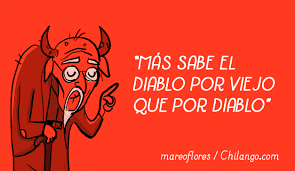Four Articles and a Poem
Weekly, I post four articles that I found significant and a poem. Our lives are enriched by seeing better. Each week, one article comes from the world of photography, a discipline that is about seeing. Another article comes from the world of technology, hence seeing something of the future. Another article takes up an aspect of our life together, seeing more clearly the other. Another article refers to faith, seeing the unseen. Finally, the weekly post concludes with a poem, because poetry is about seeing words whose arrangement allows us to see anew.
Here are four articles followed by a poem that I recommend for your weekend reading:
“Imitamini Quod Tractatis”
by John Kinsella
The day you were called
to break bread for a living
was the day you were called
to be broken.
The days you spend
bending over bread
are spent
bent around a mystery of fraction.
If you are indeed broken,
you need to gather up
each other’s fragments gently,
and remember how,
again through you,
He feeds so many
with so little.
Revised to reflect information posted below in the comments.
Here are four articles followed by a poem that I recommend for your weekend reading:
- Federal budget and data woes. This article, written by Jonathan Schwabish of the Urban Institute, explains in very calm tones something that has me very worried. We woefully under invest in the technological infrastructure for our federal government. We should be grateful that China has voluntarily "backed up" our data. Underneath the loss of I.R.S. emails and initial failures with healthcare.gov are long-standing results of misplaced budget priorities. Amid the push for evermore lean federal budgets, we will want to invest in technological infrastructure-- machines, software, and the humans who run them. This article speaks about non-nefarious data collection, statistics, but our weak investment in many areas is risky. The world is "flat" as Tom Friedman likes to say, so it is not surprising that the Middle East has one of the top ten supercomputers now. This is, frankly, an area where the government must make smart investments, not retreat.
- Tryin’ to Make a Dollar Out of 64 Cents. We know well but fail to act on the gender wage gap. For every dollar that a male makes, a woman with comparable qualifications makes 78 cents. The gap is even worse for African-American women who make 64 cents on the dollar, as reported by Marc Bayard and Kimberly Freeman on the site of the Institute for Policy Studies. Bayard, an associate fellow and director the Black Worker Initiative at the Institute for Policy Studies, and Freeman, the former Executive Director of American Rights at Work, co-authored the report And Still I Rise: Black Labor Women’s Voices, Power and Promise.
- Outraged over Cecil the lion? It may help you understand the rage over Planned Parenthood. I turn again to Charlie Camosy, a theologian from Fordham university, who suggests common ground on the rage from left and right regarding Cecil and Planned Parenthood in an opinion piece that the Los Angeles Times published.
- The Candid Frame. The Charlie Rose of photography interviewers is Ibarionex Perello. Weekly, he posts a podcast that is worth your listening. This week's interview is with Matt Sweeney who has a fascinating collection of street photography from Hollywood in the 1980s. Ibarionex concludes every interview with a request that the subject recommend another photographer who listeners should explore.
“Imitamini Quod Tractatis”
by John Kinsella
The day you were called
to break bread for a living
was the day you were called
to be broken.
The days you spend
bending over bread
are spent
bent around a mystery of fraction.
If you are indeed broken,
you need to gather up
each other’s fragments gently,
and remember how,
again through you,
He feeds so many
with so little.
Revised to reflect information posted below in the comments.




Please note that the quoted poem is not by the Australian poet John Kinsella born 1963, who is not a Catholic.
ReplyDelete